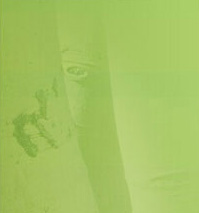 ^^^
^^^
Laboratoř buněčné biologie
Josef Lazar, Ph.D.
Doktorand
Alexey Bondar
Technický pracovník
Karolína Tošnerová
Josef Lazar, Ph.D.
Tel.: +420 389033822
lazar@usbe.cas.cz
Adresa
Zámek 136, CZ-37333 Nové Hrady
Afiliace

Ústav systémové biologie a ekologie AV ČR, v.v.i.
Ústav fyzikální biologie JčÚ
Výzkum
Development of a voltage sensitive fluorescent protein / Organization of the mammalian odorant and pheromone detection systems
The brain is an electric organ. Therefore, being able to observe changes in membrane voltage of neurons is crucial for understanding of how the brain works. While it is possible to monitor electrical activity of neurons both directly (using electrodes) and indirectly (using voltage sensitive dyes), both approaches have severe limitations. Electrophysiological methods allow monitoring of only a few cells at a time. Voltage sensitive dyes have seen only limited applications due to their toxicity and low staining selectivity. Having a genetically encoded optical sensor of membrane voltage, a voltage sensitive fluorescent protein, would avoid the drawbacks of the current methods and allow detailed monitoring of complete neural circuits and neuronal assemblies. This in turn would allow us to decipher the organizing principles of the brain, as well as the particulars of individual brain subsystems. Our goal is to understand how the brain works. That is why we are working on developing a voltage sensitive fluorescent protein.
Developing a usable voltage sensitive fluorescent protein is a hard, multidisciplinary problem. While several attempts to solve it have been published by laboratories at top universities, no one has so far succeeded. Using innovative approaches involving techniques of non-linear optics, mathematical modeling, biophysics, and molecular biology, we have made significant progress, and we are expecting several major papers to come out of our lab in near future.
Along the way towards developing a voltage sensitive fluorescent protein we have gained insights that should allow rapid development of genetically encoded sensors of many cell processes, with numerous scientific and commercial applications. Thus, while maintaining focus on development of a voltage sensitive fluorescent protein, we are now developing other genetically encoded sensors as well.
Of particular interest to us are sensors of various aspects of neural activity (activation/inactivation of receptor proteins, opening/closing of ion channels), especially if applicable to studies of mammalian olfactory/pheromone detection systems. While our past work focused on biochemistry of soluble proteins involved in odorant/pheromone transport and recognition, our current interest lies in the principles underlying the development and organization of the neural systems responsible for detection and recognition of odorants and pheromones in mammals.
A postdoctoral position available:
Preferably a physicist, but can be from a related field (such as physical chemistry). Preference will be given to candidates with experience in optics, particularly non-linear optics. A successful candidate will be designing and implementing optical microscopy experiments for various biological applications using non-linear optical phenomena such as two photon fluorescence, second harmonic generation and others. The experiments will be carried out on a unique, highly customizable laser scanning microscope equipped with a variety of light sources. Depending on the candidate, a high degree of scientific guidance or high amount of freedom will be provided.
A successful applicant will be working in a dynamic, friendly, highly international team that is being established by a young investigator with long term experience (6 years), and close collaboration with a prestigious US university (Columbia University). Travel to the US will be expected. Salaries will be supplemented from an EU grant. Results of high scientific and/or commercial value are likely. Both living and work can be arranged either in a small, beautiful historical town (Nove Hrady) or a in a bigger city (Ceske Budejovice). Some travel between the two will be necessary. Both Czech and international applications are welcome. To apply, please send an email to lazar@usbe.cas.cz. Last day for applications is June 30, 2008.
